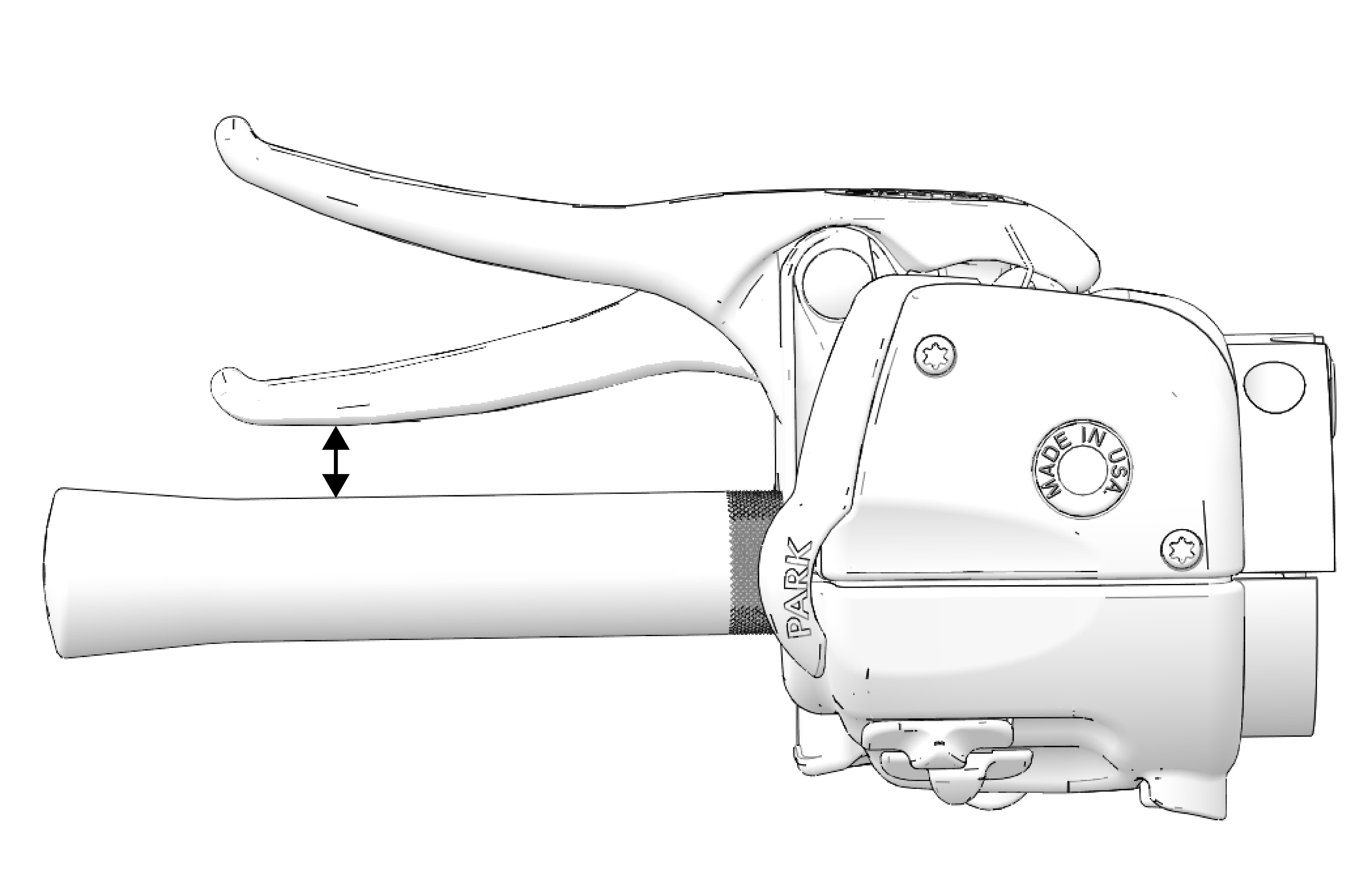
Content Source: 2020 550 Indy 144 Owner’s Manual (9929781 R01) > Pre-Ride Inspections Chapter
| IMPORTANT |
|
The Owner's Manual for this vehicle contains warnings, instructions and other information you must read and fully understand before safely riding or performing maintenance on this vehicle.Always follow the warnings and instructions in Owner's Manual. Click the CONTENTS link above for the Table Of Contents, or download a full PDF of the Owner Manual in the Owner Support area of Polaris.com |
| Operating the vehicle with worn, damaged, or malfunctioning components could result in serious injury or death. Never start the engine without checking all vehicle components to be sure of proper operation. |
Squeeze the brake lever. It should move no closer to the handgrip than 0.5 inch (1.3 cm). A smaller distance indicates low brake fluid level or air in the hydraulic system. See page 87 or see your dealer for service.

| Continued use of “spongy” brakes may cause a complete loss of brakes, which could result in serious injury or death. Always have the brakes serviced at the first sign of sponginess. |
| NOTE |
| If the brake lever is squeezed tightly enough, the lock will move freely into place. Do not force the lock or it may break. |
| If the parking brake lever lock is partially or entirely engaged while riding, the brakes may overheat, resulting in brake damage. In extreme cases it could cause a fire, which could result in serious injury or death. Always ensure that the lever lock is completely disengaged before operating the snowmobile. |
| Ice and snow build-up may interfere with the steering of your snowmobile, resulting in serious injury or death. Keep the underhood area free of snow and ice. |
| Operating the snowmobile with a damaged track increases the possibility of track failure, which could cause loss of control resulting in serious injury or death. Always inspect the track for damage before using the vehicle. |
| Use of traction products such as studs increases the possibility of track damage and/or failure. Driving at high speeds for extended periods of time in marginal lubrication could severely damage track rods, break track edges, and cause other track damage. Examples of marginal lubrication would include frozen bodies of water without snow cover, icy trails, and no-snow conditions. |
| caution |
|
The hood and side panels of the snowmobile protect the
operator from moving parts. Never operate a snowmobile with the hood
or side panels open or
removed. Always ensure that the hood and side panels are securely
in place before starting the engine.
|
© Copyright Polaris Industries Inc. All rights reserved.